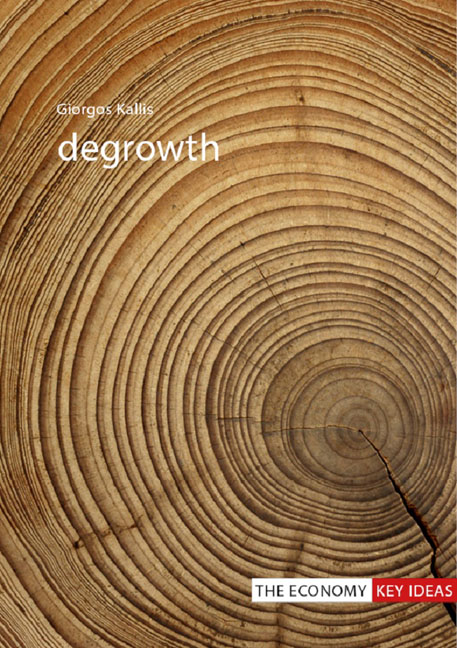4 - The case for degrowth
Published online by Cambridge University Press: 09 August 2023
Summary
In the previous chapter I distinguished growth as a material process from the “growth paradigm”: the hegemonic idea that growth is natural, necessary and desirable. Degrowth marks a frontal attack on the growth paradigm. The growth paradigm is wrong because growth is not natural, because it is no longer socially or ecologically desirable, and because it is not necessary (other than in that the capitalist system works more smoothly with it than without it).
That growth may not be necessary or desirable does not make degrowth automatically desirable either. The degrowth hypothesis is that a trajectory of social transformation with a concomitant contraction of resource throughput can be socially and ecologically desirable. How, and under what conditions, is the object of a degrowth research agenda.
Growth is not natural or inevitable
Those who defend growth often imply that growth is the natural and inevitable course of the economy. The argument is something like this. Left alone, without government meddling, entrepreneurs will make an economy grow, as they are endlessly creative in increasing their incomes. Growth is then the natural product of a free, self-regulated market. The destiny of the economy, unless human institutions mess with it, is to grow, just as the destiny of a newborn is to grow up or that of a small tree is to grow taller and taller. The pursuit of growth is imprinted in our instincts, if not our genes, the argument goes. Given the opportunity, like other species we expand our habitat and resource use as much as possible. It might have taken us a while to find the word (“growth”), but the desire and potential has always been there.
This naturalistic analogy is wrong on many counts. First, perpetual growth does not exist in nature. Children and trees grow “up” to a point – they do not grow at a compound rate ad infinitum. No species grows to infinity, and when a population grows too much and consumes too many resources, it collapses before it reaches a new ecological balance with other species.
- Type
- Chapter
- Information
- Degrowth , pp. 85 - 116Publisher: Agenda PublishingPrint publication year: 2018



